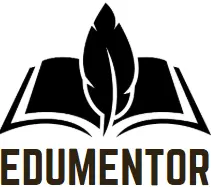Introduction.
Scholarship committees receive hundreds or thousands of applications every year. While grades, essays, and recommendation letters are standard, a digital portfolio can give you a unique competitive edge by showcasing your achievements, skills, and personality in an interactive way.
A well-crafted digital portfolio can:
- Demonstrate your skills visually
- Prove your commitment and creativity
- Make your application memorable among others
Digital Portfolio.
A digital portfolio is an online collection of your best academic work, extracurricular activities, projects, and personal achievements, organized in a visually appealing format.
It may include:
- Personal introduction video
- Project showcases
- Certificates & awards
- Academic transcripts
- Letters of recommendation
- Writing samples, artwork, or research papers
It Boosts Your Scholarship Profile
Scholarship panels love evidence of impact. A portfolio:
- Gives context to your achievements
- Shows proof beyond words in an essay
- Demonstrates digital literacy (an important modern skill)
- Makes your story stand out visually
Example: Instead of just writing “I led a community project that planted 500 trees”, you can show:
- Photos of the project in action
- Testimonials from community members
- A short video documentary
Steps to Create a Scholarship-Winning Digital Portfolio
Define Your Goals
Ask yourself:
- What scholarships am I applying for?
- Which skills/achievements are most relevant to them?
Example: If it’s a STEM scholarship, focus more on science projects, research, coding work, etc.
Choose the Right Platform
Popular free/affordable options:
- Wix – Easy drag-and-drop portfolio builder
- WordPress – Highly customizable with templates
- Canva Website – Simple, visual-heavy design
- Adobe Portfolio – For creative/visual projects
- Google Sites – Quick and free setup
Include Key Sections
- About Me – Short biography, academic interests, career goals
- Achievements & Awards – Photos and scanned certificates
- Academic Projects – Reports, research, presentations
- Extracurricular Activities – Clubs, volunteer work, leadership roles
- Skills – Languages, technical skills, soft skills
- Testimonials/References – Quotes from teachers, mentors, or project partners
- Contact Information – Professional email, LinkedIn link
Use Multimedia to Stand Out
- Short videos (1–2 min) explaining your projects
- Before-and-after photos for community service work
- Infographics summarizing your achievements
- Embedded presentations (Google Slides, PowerPoint)
Make It Scholarship-Friendly
- Keep navigation simple
- Highlight relevant achievements first
- Use clear headings and short descriptions
- Avoid overloading with unrelated work
Common Mistakes to Avoid
- Too much text – Scholarship panels have limited time
- Poor quality images – Use high-resolution, clear visuals
- Unprofessional tone – Keep it formal and respectful
- No mobile optimization – Many reviewers check on phones
How to Share Your Digital Portfolio
- Include the link in your scholarship application
- Add it to your resume/CV under “Portfolio”
- Mention it in your personal statement as “Additional Materials”
- Share it in follow-up emails with scholarship committees
Example Portfolio Structure for a STEM Scholarship
Homepage: Introduction + Headshot
Projects: Robotics competition entry with photos and results
Research: Science fair project with PDF report
Volunteer Work: Teaching coding to younger students with testimonials
Awards: Certificates from math Olympiads and STEM events
Benefits Beyond Scholarships
Even after your scholarship application, a digital portfolio can:
- Help you in internship applications
- Impress potential employers
- Serve as a living record of your academic growth
- Be updated easily as you achieve more
Tools to Enhance Your Portfolio
- Canva – Create infographics and resumes
- Loom – Record quick project explanation videos
- Grammarly – Keep text professional and error-free
- Unsplash – Free professional-quality images for design


